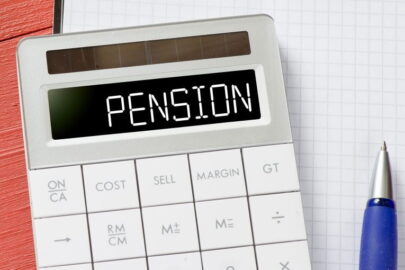The lowest paid in our society have come under increased financial pressure from the pandemic, leaving them with a stark choice between paying their bills and saving for the future.
A third of people in the UK earning £10-£20k per year (31%) have reported a decline in their finances during the pandemic, with 18% experiencing a drop in income, according to the latest Scottish Widows Retirement Report.
This has compounded worries about retirement, with 54% now concerned about running out of money in their later years and 23% expecting to work until they drop.
As a result of job and income losses, Scottish Widows estimates that low earners will have missed out on a combined £122m in pension contributions from their employers during Covid-19 – a figure that almost triples to £325m if including personal contributions.
The pension provider is now calling for urgent reforms that would entitle those on low incomes to continue to receive contributions from their employer, if they are unable to meet the costs of employee contributions during a period of financial hardship.
Pete Glancy, head of policy at Scottish Widows, said: “Covid-19 has had a massive impact on the nation’s finances, particularly on those who were already struggling financially. Those working from home have benefited from reduced commuting costs and everyday expenses, allowing them to boost their savings. But those on lower incomes – and less likely to have worked at home during the pandemic – have seen their finances hit hard and are leaning on savings to cover bills and short-term needs.”
Despite the challenges presented by the pandemic, Scottish Widows believes there is some cause for optimism as the proportion of people saving adequately for retirement – those putting away the recommended minimum 12% − reached a record high at 61% this year.
This progress is being driven by young savers, with 6% more 30–39-year-olds now saving adequately compared to last year. This is due to a reduction in living costs, as well as the government’s decision to continue supporting pension payments through the Coronavirus Job Retention Scheme (CJRS) for those working in shutdown sectors.
That said, the positive impact of auto-enrolment has begun to plateau in recent years and Scottish Widows believes fresh thinking is needed to ensure progress is continued.
Glancy added: “The habit of saving for retirement has proved to be incredibly resilient given the financial pressures people have faced over the past year and even a modest growth of 1% is positive news. But this also comes with a health warning. The positive impact of auto-enrolment has plateaued and we’re unlikely to see the number of people saving dramatically increase in the years ahead.
“While 12% of earnings going into your pension will provide a basic standard of living in retirement, a minimum of 15% is more realistic for anyone hoping to enjoy a more comfortable retirement. And there are great swathes of the working population – for example, the self-employed and those earning less than £10,000 – for whom auto-enrolment doesn’t apply. A radical rethink is now required to tackle the post-pandemic challenges.”
